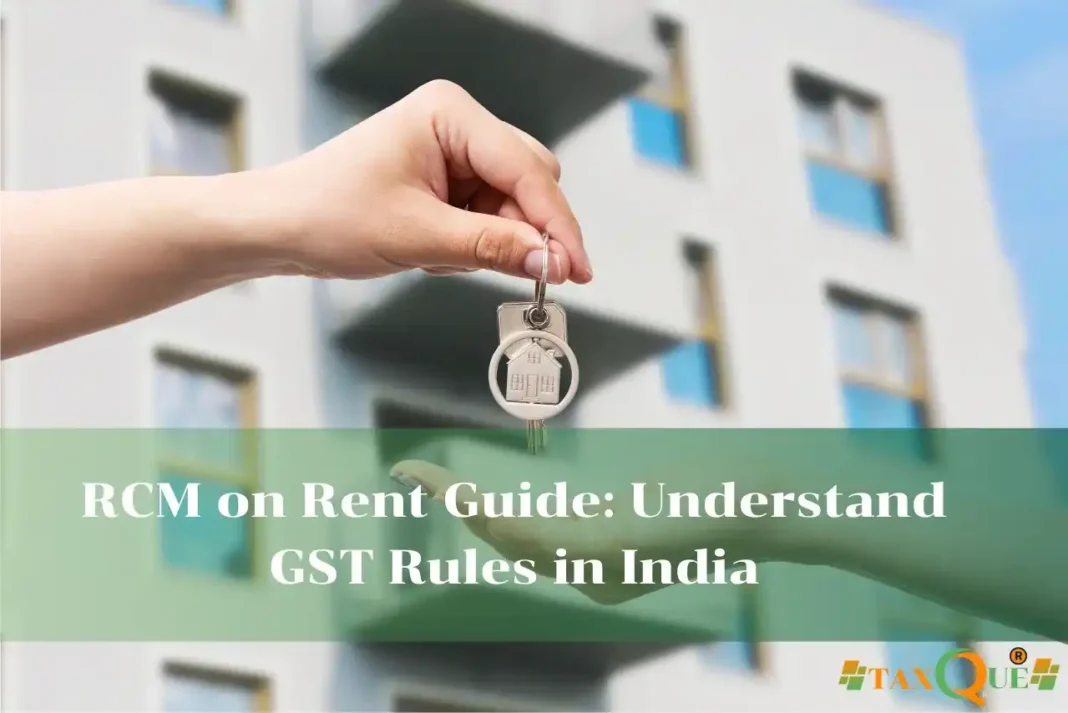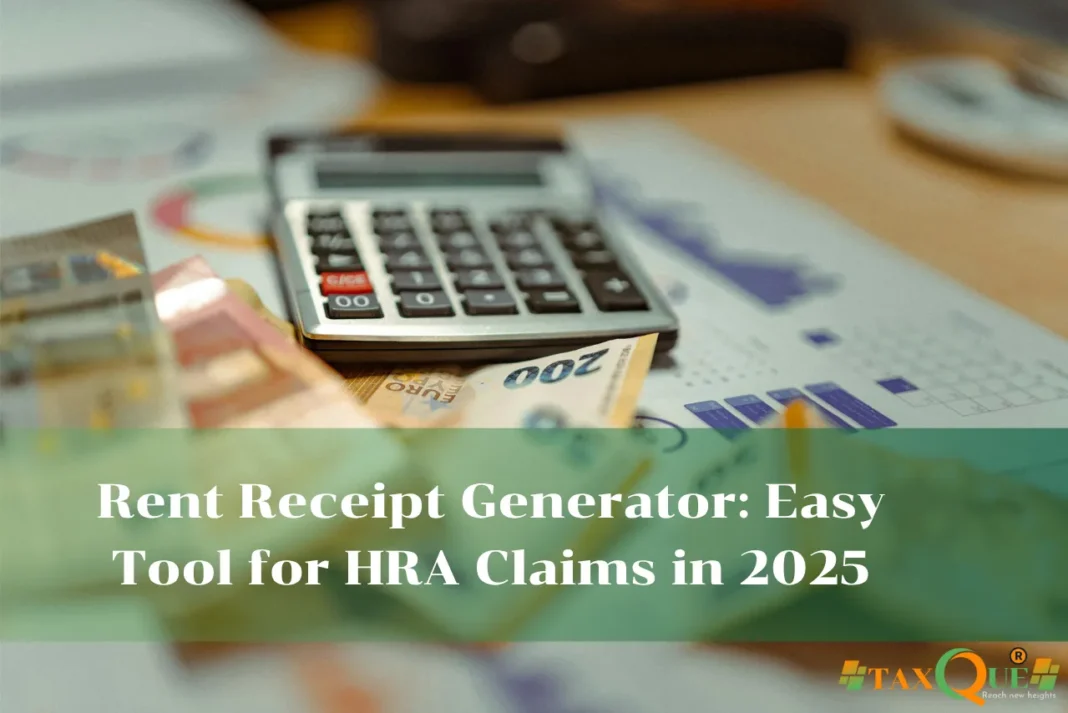Introduction
The RCM on rent, or Reverse Charge Mechanism under GST, is a system where the tenant pays GST instead of the landlord in certain rental transactions in India. Introduced to ensure tax compliance, RCM on rent applies when a GST-registered tenant rents from an unregistered landlord, covering both residential and commercial properties. With recent updates in October 2024, the scope of RCM on rent has expanded, making it essential for businesses and individuals to understand its rules. This guide explains the process, tax rates, compliance, and more, based on verified information as of June 2025.
What is RCM on Rent?
RCM on rent refers to the Reverse Charge Mechanism under the Goods and Services Tax (GST) Act, where the tenant, if registered under GST, is responsible for paying the tax on rent instead of the landlord. This applies when the landlord is not registered under GST, ensuring the government collects tax even in such cases. Governed by Section 9(3) of the CGST Act, 2017, RCM on rent helps prevent revenue loss and ensures compliance in the rental sector.
- Purpose: Collects GST from unregistered landlords through registered tenants.
- Legal Basis: Notification No. 04/2022 (July 13, 2022) for residential rent and No. 09/2024 (October 8, 2024) for commercial rent.
Example: A GST-registered company in Hyderabad renting an office from an unregistered landlord must pay 18% GST under RCM on rent.
When Does RCM on Rent Apply?
The RCM on rent applies in specific scenarios, depending on the type of property and the GST registration status of the tenant and landlord. Here’s a breakdown:
- Residential Rent:
- Exempt if the tenant is unregistered (e.g., a salaried individual renting for personal use).
- Applicable under RCM if the tenant is GST-registered (e.g., a business renting for office use), as per Notification No. 04/2022 dated July 13, 2022.
- Commercial Rent:
- Applies when a GST-registered tenant rents from an unregistered landlord, as expanded by Notification No. 09/2024 effective October 10, 2024.
- If the landlord is registered, they collect GST under the forward charge mechanism, and RCM does not apply.
Example: A GST-registered retailer renting a shop in Mumbai from an unregistered landlord pays GST under RCM on rent, while a private tenant renting a flat is exempt.
Tax Rates and Compliance for RCM on Rent
The tax rate and compliance requirements for RCM on rent are straightforward but require attention to detail:
| Aspect | Details |
|---|---|
| GST Rate | 18% (9% CGST + 9% SGST or 18% IGST for inter-state rentals) |
| Self-Invoicing | Tenant must issue a self-invoice for the rent, detailing GST payable |
| GST Returns | Report RCM liability in GSTR-3B under the RCM section |
| Input Tax Credit | Tenant can claim ITC if the property is used for business purposes |
| Payment | Tenant pays GST directly to the government via the GST portal |
- Calculation: For a monthly rent of ₹50,000, the tenant pays ₹9,000 GST (18%) under RCM.
- ITC Eligibility: Registered tenants can claim Input Tax Credit (ITC) on the GST paid, reducing their tax liability, provided the property is used for taxable supplies.
Example: A business paying ₹1 lakh rent monthly under RCM pays ₹18,000 GST and claims it as ITC in GSTR-3B, offsetting tax on their sales.
Steps to Comply with RCM on Rent
To follow the RCM on rent rules, tenants must:
- Verify Landlord’s GST Status: Confirm the landlord is unregistered under GST to ensure RCM applies.
- Issue Self-Invoice:
- Create a self-invoice for the rent paid, including rent amount, GST rate (18%), and tax payable.
- Use GST-compliant invoicing software for accuracy.
- Pay GST: Deposit the GST amount (e.g., ₹9,000 for ₹50,000 rent) via the GST portal using the electronic cash ledger.
- Report in GST Returns:
- Declare the RCM liability in GSTR-3B under the RCM section.
- File returns by the 20th of the next month (e.g., August 20 for July).
- Claim ITC: Include the GST paid in GSTR-3B to claim ITC, ensuring the property is used for business purposes.
Example: A GST-registered firm in Chennai renting a commercial space for ₹2 lakh monthly issues a self-invoice, pays ₹36,000 GST, and claims ITC in their August GSTR-3B.
Benefits and Challenges
Benefits:
- Tax Compliance: Ensures GST collection from unregistered landlords, reducing tax evasion.
- ITC for Tenants: Registered tenants can claim ITC, lowering their overall tax burden.
- Transparency: Streamlines tax collection for rentals, aligning with GST Council goals.
Challenges:
- Compliance Burden: Tenants must handle invoicing and GST payments, which can be complex for small businesses.
- Awareness Gaps: Many tenants are unaware of RCM rules, risking penalties for non-compliance.
- No ITC for Landlords: Unregistered landlords cannot claim ITC, potentially affecting rental pricing.
Tips: Use GST software for invoicing, stay updated with GST Council notifications, and consult experts for compliance.
FAQs
- What is RCM on rent?
RCM on rent is when a GST-registered tenant pays GST instead of an unregistered landlord, applicable for residential (business use) and commercial rentals. - When does RCM on rent apply?
It applies when a GST-registered tenant rents from an unregistered landlord, for residential (business use) or commercial properties, as per 2024 updates. - What is the GST rate for RCM on rent?
The rate is 18% (9% CGST + 9% SGST or 18% IGST), payable by the tenant on the rent amount. - Can tenants claim ITC on RCM on rent?
Yes, registered tenants can claim ITC if the property is used for business purposes and they file returns correctly. - How do I comply with RCM on rent?
Issue a self-invoice, pay 18% GST via the GST portal, report in GSTR-3B, and claim ITC if eligible.
Conclusion
The RCM on rent under GST ensures tax compliance when registered tenants rent from unregistered landlords, covering both residential (for business use) and commercial properties. With an 18% GST rate and the ability to claim ITC, tenants must issue self-invoices and report in GSTR-3B. Recent updates from October 2024 expanded RCM to commercial rentals, making awareness crucial. Use platforms like TaxQue to simplify compliance, stay updated with GST Council rules, and ensure accurate documentation for a smooth RCM on rent process.





